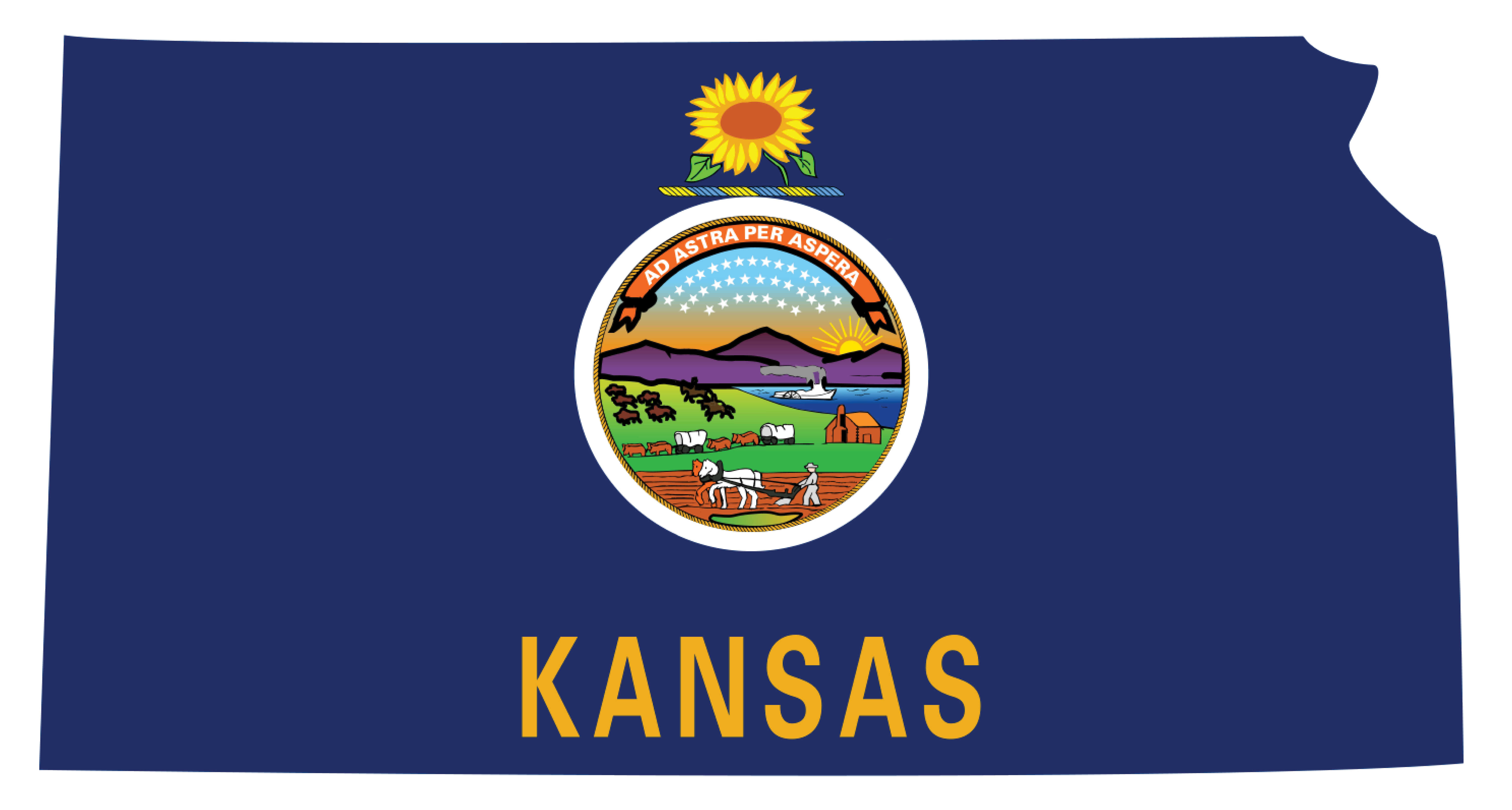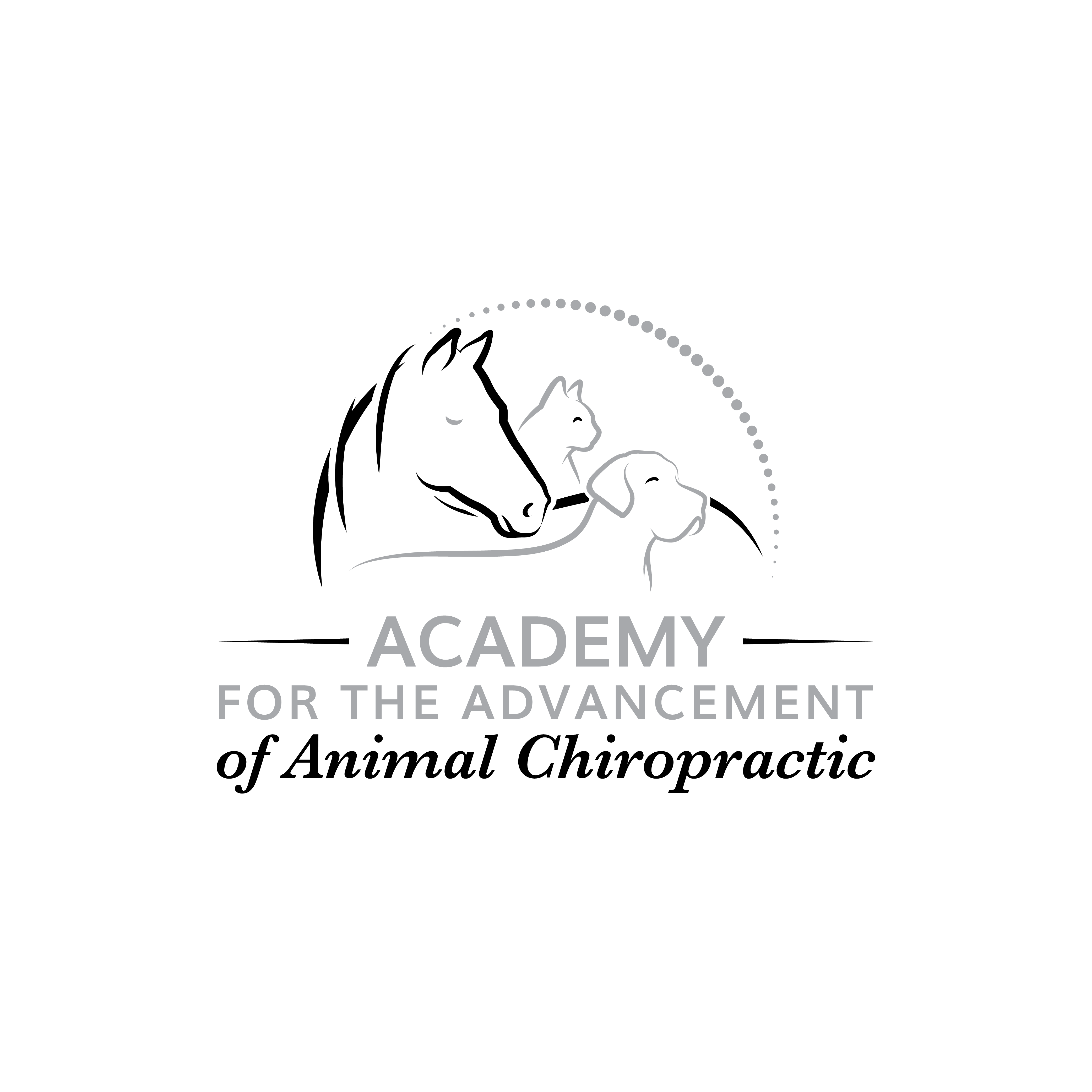Kansas
Animal Chiropractic Laws

Kansas | Animal Chiropractic Summary
In general in Kansas, the animal chiropractor authority is under the Veterinarian licensing board. An animal chiropractor can only treatm animals either under direct supervision of a vet or on the referral of a veterinarian.
Laws
Statute | Kansas State Legislature
47-816. As used in the Kansas veterinary practice act:
(a) ”Animal” means any mammalian animal other than human and any fowl, bird, amphibian, fish or reptile, wild or domestic, living or dead.
(b) ”Board” means the state board of veterinary examiners.
…
(h) ”Practice of veterinary medicine” means any of the following:
(1) To diagnose, treat, correct, change, relieve, or prevent animal disease, deformity, defect, injury or other physical or mental condition; including the prescription or administration of any drug, medicine, biologic, apparatus, application, anesthesia or other therapeutic or diagnostic substance or technique on any animal, including, but not limited to, acupuncture, surgical or dental operations, animal psychology, animal chiropractic, theriogenology, surgery, including cosmetic surgery, any manual, mechanical, biological or chemical procedure for testing for pregnancy or for correcting sterility or infertility or to render service or recommendations with regard to any of the above and all other branches of veterinary medicine. (emphasis added)
Veterinary Examiners FAQs:
Direct link: https://kbve.kansas.gov/faq
Who can offer animal chiropractic?
CHIROPRACTIC TREATMENT TO ANIMALS PROHIBITED EXCEPT AS SPECIFIED BY THE KANSAS VETERINARY PRACTICE ACT
The KANSAS VETERINARY PRACTICE ACT (KVPA) defines Animal Chiropractic as the practice of Veterinary medicine. K.S.A. 47-816(h)(1). The KVPA further establishes that “NO PERSON SHALL PRACTICE VETERINARY MEDICINE IN THIS STATE WHO IS NOT CURRENTLY AND VALIDLY A LICENSED VETERINARIAN”. K.S.A. 47-817.
A limited statutory exception exists allowing a Chiropractor licensed under the KANSAS HEALING ARTS ACT to associate with a licensed Veterinarian whereby Chiropractic treatment of an animal may be delegated. K.S.A. 47-817(i) and K.A.R. 70-7-1(n). Any delegation MUST be either directly or indirectly supervised.
- Direct Supervision K.S.A. 47-817(e).
- The supervising licensed Veterinarian: Is on the Veterinary Premises or in the same general area in a field setting; is quickly and easily available; examines the animal prior to delegating Chiropractic Treatment; performs any additional examination of the animal required by good Veterinary practice; and delegates only that Chiropractic Treatment as is consistent with rules and regulations of the Kansas Board of Veterinary Examiners. See 70-7-1(n) below.
- Indirect Supervision K.S.A. 47-817(g).
- The supervising licensed Veterinarian: Is not on the Veterinary Premises or in the same general area in a field setting; has examined the animal and provided either written or documented oral instructions or a written protocol for Chiropractic Treatment of the animal patient; and delegates only that Chiropractic Treatment as is consistent with rules and regulations of the Kansas Board of Veterinary Examiners. See 70-7-1(n) below.
- Delegation K.A.R. 70-7-1(n).
-
The regulation requires the Veterinarian to provide direct supervision of a Chiropractor providing Chiropractic Treatment of an animal, except that a Veterinarian may provide indirect supervision to a Chiropractor that is following the written instructions for treatment of the animal patient on the veterinary premises.
The regulation limits a Veterinarian’s delegation to a Chiropractor of Chiropractic Treatment of an animal as is consistent with the Chiropractor’s training, experience, and professional competence.
The regulation prohibits a Veterinarian from delegating diagnosis, performance of any surgical procedure, and prescription of any drug, medicine, biologic, apparatus, application, anesthesia, or other therapeutic or diagnostic substance or technique.
All Chiropractic Treatment to animals must be performed at a registered Veterinary Premises unless directly supervised in a field setting by a licensed veterinarian. K.S.A. 47-816(k) and K.S.A. 47-840(a); K.A.R. 70-7-1(n).
Note that the above statements are not the exact statutory and regulatory language.
Certification Requirements
N/A
Scope of Practice
See above under “laws” for more information
Continuing Education reqirements
N/A
